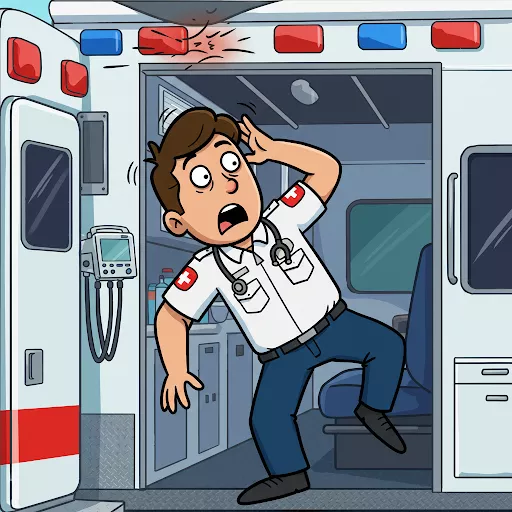As an emergency medical responder, I’ve seen firsthand how one fall, crash, or strike to the head can change a life forever. Traumatic Brain Injury (TBI) doesn’t always scream for attention. Sometimes, it whispers—months or even years later—with forgetfulness, confusion, and changes in personality. And for some patients, these signs are more than just the aftermath of head trauma—they’re the beginnings of early-onset Alzheimer’s disease.
This post takes you through the journey I’ve witnessed time and again, from that first 911 call to the long road ahead. If you’re a fellow first responder, caregiver, or just someone trying to understand what’s going on with a loved one, I hope this helps connect the dots.
The Scene: The Call That Starts It All
The tones drop. Dispatch reports a “female down,” possibly tripped on uneven pavement. We arrive to find a middle-aged woman—let’s call her Jane—who’s conscious but disoriented. There’s bruising on her face, a cut above the eye, and complaints of nausea and a pounding headache.
Vitals are stable. No signs of spinal involvement. We suspect a concussion or moderate TBI and transport her for evaluation. I’ve run this call dozens of times. But what happens after the ER visit isn’t always in our control—or in our training manual.
The Shift: When “Recovery” Isn’t What It Seems
In Jane’s case, the bruises fade, and the stitches come out. But a few months later, her family noticed something was not right. She’s struggling with names, loss of words while talking and repeating stories. A few months after that, she’s forgetting to pay bills, and appointments with friends.
This isn’t normal aging. These are early cognitive signs that are easy to chalk up to aging or stress. But for patients with a history of head injury, it’s a red flag, it’s early-onset Alzheimer’s—diagnosed before age 65, and in Jane’s case, likely triggered or accelerated by her TBI.
The Hidden Threat: What TBI Does to the Brain
A traumatic brain injury disrupts normal brain function. Depending on severity, it can stretch or tear neural pathways, increase inflammation, and trigger abnormal protein buildup. The damage may seem temporary, but it lays a neurological minefield that can manifest later as cognitive decline.
Key TBI facts:
- 1.7 million Americans sustain a TBI each year.
- Even mild TBIs (concussions) increase the risk of dementia.
- Moderate to severe TBIs double to quadruple the risk of developing Alzheimer’s disease.
The Research Connection: TBI and Early-Onset Alzheimer’s
Traumatic brain injury can accelerate the deposition of beta-amyloid plaques and tau tangles—hallmarks of Alzheimer’s disease. Research from the Mayo Clinic, the Alzheimer’s Association, and VA studies show that moderate to severe TBIs double to quadruple the risk of developing dementia later in life, sometimes manifesting years earlier than typical Alzheimer’s cases. One landmark study from the Journal of Neurology found that people with a history of moderate or severe TBI had a 2.3 times greater risk of developing Alzheimer’s disease.
And here’s what’s especially important for us in EMS and first response:
- Single severe TBIs (like a fall or car accident) can increase long-term risk.
- Repeated mild TBIs (like in sports or domestic violence cases) can be just as dangerous.
- Younger adults (30s–50s) with a history of TBI may develop symptoms of Alzheimer’s decades earlier than expected.
What We Can Do as Responders
- Document thoroughly: Mechanism of injury, GCS, LOC, neurological symptoms—all of it matters down the road.
- Educate caregivers: A head injury isn’t “just a bump.” Encourage follow-up and neuro evals.
- Advocate for early screening: Especially if cognitive changes emerge months after the injury.
- Stay involved: If your community has outreach, help raise awareness about the TBI-dementia link.
Final Thoughts
As EMRs, we may only spend minutes with our patients—but those minutes matter. By treating every TBI as a potentially life-altering event, we become the first line of defense not just against acute trauma, but against long-term cognitive decline.
It starts with us—and it doesn’t end at the ER doors.
Resources for Patients & Families
- Alzheimer’s Association – TBI and Dementia
www.alz.org
Great for educational content, support groups, and finding local chapters. - Brain Injury Association of America (BIAA)
www.biausa.org
Focused specifically on TBI recovery and long-term outcomes. - Mayo Clinic – Traumatic Brain Injury & Dementia Research
www.mayoclinic.org
Reliable source for clinical research and patient education. - National Institute on Aging – TBI & Alzheimer’s Link
www.nia.nih.gov
Includes current studies and information on early-onset Alzheimer’s. - Veterans Affairs TBI/Dementia Programs
www.va.gov
Many veterans are at elevated risk for TBI-related dementia. Specialized support is available.

